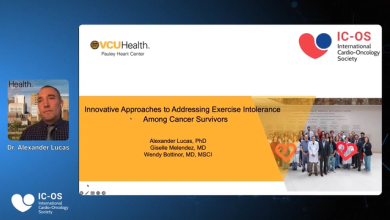
Research areas
Biography
Dr Giselle Melendez is an Assistant Professor at Wake Forest University School of Medicine, Winston-Salem, US.
Commencing her scientific career at the University of South Carolina School of Medicine, Dr. Melendez focused on molecular mediators of myocardial extracellular matrix remodeling and heart failure. Notably, her research uncovered vital insights into inflammatory cytokines TNF-α, IL-6, and their soluble receptor, elucidating their role in myocardial remodeling and heart failure.
Upon joining Wake Forest University School of Medicine in 2012, Dr. Melendez expanded her investigations through pre-clinical trials and translational studies in non-human primates. She explored the effects of chemotherapies on cardiac fibroblasts and myocardial extracellular matrix remodeling. Motivated by a keen interest in cancer therapy cardiotoxicity, she acquired expertise in cardiovascular magnetic resonance (CMR) imaging to noninvasively evaluate myocardial fibrosis, employing innovative T1 and T2 mapping techniques. Currently, she integrates these advanced imaging methods into pre-clinical animal models, enhancing the translatability of her research.
Actively engaged in clinical trials and population cardiovascular research, Dr. Melendez explores the contribution of cardiac fibrosis to cancer therapy-induced left ventricular dysfunction. Holding a prestigious K award, she investigates the links between cellular senescence and associated mitochondrial dysfunction in anthracycline therapy-induced myocardial fibrosis and left ventricular dysfunction. The outcomes of her research aim to uncover novel cellular and molecular mechanisms that can be targeted, bridging basic science and preclinical studies with clinical research to advance effective interventions for minimizing cardiotoxicity among cancer survivors.
Dr Melendez's research interests are in the developing field of cardio-oncology as well as heart failure and myocardial fibrosis. She is devoted to advancing the understanding of the cardiotoxicity caused by chemotherapy, identifying the root causes of cardiovascular morbidities in cancer survivors and developing novel interventions to prevent and/or treat these conditions.
Media
Wendy Bottinor, Alexander Lucas, Giselle Melendez, et al
Joseph C. Wu, Alicia Morgans, Evandro de Azambuja, et al









